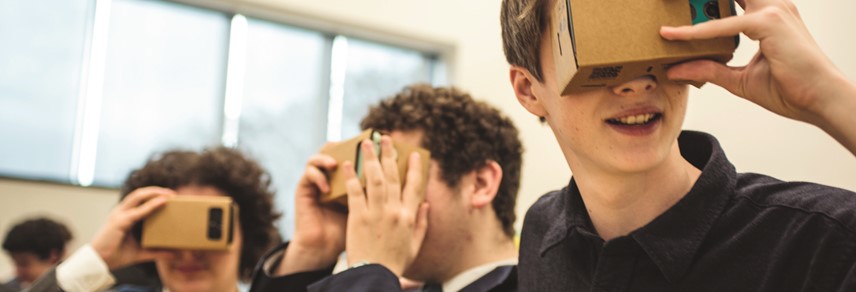
FOSTERING BRITAIN'S DIGITAL FUTURE
The 1960s was the early age of computing. To make the giant machines run, people were employed specifically to man the spools of tape that fed the primitive computers. Now, almost every job has a digital element to it and, now more than ever, demand for skilled, interested digital employees is rife in the UK.
For that reason, BIMA – the organisation representing Britain’s digital industry – has worked for the past four years to invigorate the nation’s schoolchildren and introduce them to careers in digital communications. On Digital Day, or D-Day, hundreds of digital agency professionals go into schools and work with thousands of pupils aged 13-16 to enhance understanding of digital careers.
“Our role at BIMA is to try and build a stronger digital industry,” says BIMA president Tarek Nseir. “The reality for us is that Digital Day is probably the most valuable thing we give back to the industry. It is making sure we tackle what is singularly our largest objective – to make sure we have the strongest digital talent. It couldn’t be more central to BIMA’s purpose.”
As the founder of digital agency Th_nk, Nseir has first hand knowledge of the skills gap and hiring challenges facing British employers. D-Day was originally conceived of as a way to close the digital skills gap. A few years on, the gap is still apparent, but things are looking up. Schools are actively seeking BIMA out to run D-Day with their students. And, Generation Z is the first comprised of true digital natives. Nseir says their entry into the workplace will allow them to apply the skills and creativity they exhibit naturally through digital.
D-Day, this year, is on 14 November. Two hundred schools and 5,000 pupils will take part in the challenges set by BIMA and its partner, LV=. They will be charged with filling the brief and putting their imaginations to work in digital communications. But the day is also a chance for the agencies working in schools to share some of the details about working in digital that students might not otherwise know. “There’s a lot of focus on graduates, but we really think that going into schools and influencing people at an age where they are easily influenced is massively valuable,” Nseir says. “Nowhere near enough of it is done.”
Education and engagement will soon be matched by imagination as students across the UK take part in the D-Day challenge and vie for the top prize in their classrooms and in the national competition run each year to determine the best project.


